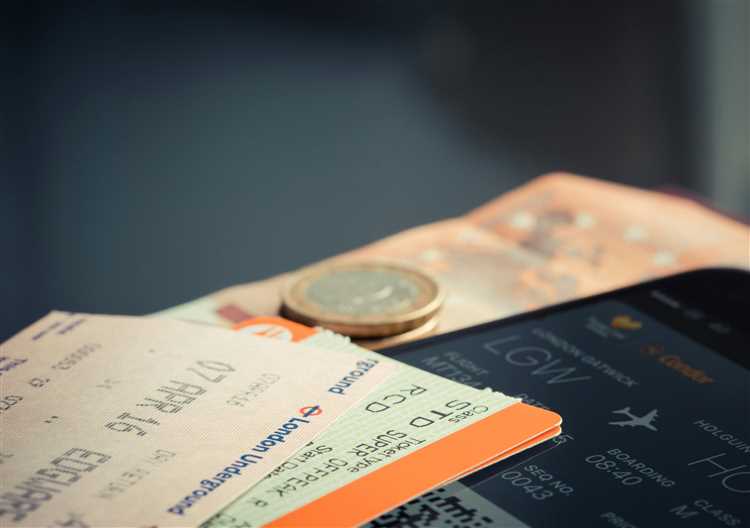
Booking airline tickets online has become the preferred method for travelers worldwide. With just a few clicks, you can compare flights, select seats, and secure your travel plans without the need to visit a physical ticketing office. However, the variety of options and policies can sometimes make the process overwhelming.
This guide is designed to help you navigate the complexities of online flight reservations with ease. From understanding different fare classes to choosing the most convenient payment methods, you’ll find practical tips to streamline your booking experience. Whether you’re planning a business trip or a vacation, mastering these strategies will save time and ensure a hassle-free journey.
By leveraging tools like price comparison platforms and exploring loyalty programs, you can also discover ways to save money and enjoy added travel benefits. With a clear understanding of airline policies and booking platforms, your next online reservation can be both efficient and rewarding.
Understanding Different Fare Classes
When booking airline tickets, understanding fare classes can help you choose the option that best fits your travel needs and budget. Airlines categorize their tickets into various fare classes, each offering different levels of flexibility, amenities, and price points.
- Economy Class: The most affordable option, ideal for budget-conscious travelers. Economy fares often have restrictions on changes or refunds and may not include additional services like seat selection or checked baggage.
- Premium Economy: A step up from standard economy, this class provides extra legroom, enhanced meal options, and priority services, making it a more comfortable yet affordable choice.
- Business Class: Designed for travelers seeking comfort and convenience, business class offers spacious seating, gourmet meals, lounge access, and flexible ticket policies.
- First Class: The most luxurious fare class, featuring private suites, exclusive amenities, and personalized services. It’s ideal for travelers prioritizing luxury and exclusivity.
Fare classes also impact frequent flyer points and upgrades. Higher fare classes typically earn more points, while lower classes may have restrictions on accrual or eligibility for upgrades.
Before booking, review the airline’s fare rules to understand cancellation policies, baggage allowances, and change fees. Being informed ensures you select the best option for your journey.
Exploring the Basics of Ticket Types

When booking airline tickets, it’s essential to understand the different ticket types available. Each type caters to specific travel needs, offering varying levels of flexibility, cost, and convenience. Knowing these options will help you make an informed decision.
- Non-Refundable Tickets: These are typically the most affordable but come with strict cancellation policies. If your plans change, you may lose the ticket value or incur significant change fees.
- Refundable Tickets: A more flexible option, allowing cancellations or changes with minimal or no fees. These tickets are usually priced higher but provide peace of mind for uncertain schedules.
- One-Way Tickets: Ideal for travelers who need flexibility or are planning open-ended trips. These allow you to book separate flights for departure and return without restrictions.
- Round-Trip Tickets: A cost-effective choice for travelers with fixed itineraries. Booking both legs of the journey at once often results in savings.
- Multi-City Tickets: Designed for complex itineraries, these tickets allow you to include multiple destinations in a single booking, saving time and effort.
Each ticket type comes with specific terms and conditions. Always review the details, including change fees, baggage allowances, and travel date restrictions, before finalizing your purchase. Selecting the right ticket type ensures a smooth and tailored travel experience.
How to Compare Flight Prices Effectively

Finding the best flight deal involves more than just looking at the lowest price. To compare flight prices effectively, it’s important to evaluate the full value of each option, considering factors beyond the base fare. This ensures you select a flight that balances cost with convenience and comfort.
Below is a comparison guide to key elements when evaluating flight prices:
Using price alert tools and flexible date searches can further enhance your ability to find the best deals. Always verify terms and conditions before finalizing your booking to avoid hidden fees or restrictions.
Using Tools and Strategies for Savings
Maximizing savings on airline tickets requires smart use of online tools and proven strategies. By leveraging available resources, you can secure the best deals without compromising on travel preferences.
Flight Comparison Websites: Use platforms like Skyscanner, Google Flights, or Kayak to compare prices across multiple airlines and booking sites. These tools allow filtering by cost, duration, and stopovers to find the most suitable options.
Price Alerts: Set up alerts for your desired route to receive notifications about fare drops. Many platforms offer this feature, enabling you to book when prices are at their lowest.
Flexible Travel Dates: Flying on weekdays, during off-peak seasons, or at less popular times can lead to significant savings. Use fare calendars to identify the cheapest travel days.
Loyalty Programs and Credit Cards: Enroll in frequent flyer programs and consider using credit cards that offer travel rewards. Points and miles can be redeemed for free or discounted flights, upgrades, and other perks.
Booking Directly with Airlines: While third-party sites offer convenience, booking directly on an airline’s website may include benefits like exclusive deals, better customer service, and fewer restrictions on changes or cancellations.
Combining these tools and strategies ensures you get the most value from your booking while keeping costs low. A well-planned approach not only saves money but also enhances the overall travel experience.
Choosing the Best Payment Options

When booking airline tickets, selecting the right payment option ensures a smooth transaction while unlocking potential benefits. Different methods cater to various needs, from security to rewards and flexibility.
Credit Cards: These are widely accepted and often come with travel benefits such as reward points, purchase protection, and insurance coverage. Many travel-focused credit cards also offer discounts or bonus points for airline bookings.
Bank Transfers: Some airlines allow direct bank payments for added security. This option avoids credit card fees but may take longer to process.
Prepaid Travel Cards: Prepaid cards are a good choice for budgeting and avoiding debt. They work like debit cards and are especially useful for international bookings, as they often offer favorable exchange rates.
Mobile Payment Apps: Services like Apple Pay and Samsung Pay provide a fast and secure checkout process, eliminating the need to enter card details manually.
Combination Payments: Some airlines let you combine methods, such as paying part with loyalty points and the rest with a card or wallet. This flexibility can help optimize savings.
Choosing the best payment option depends on your priorities, whether it’s earning rewards, managing expenses, or enhancing transaction security. Always confirm the terms before finalizing the booking to avoid unexpected issues.
Credit Cards, Wallets, and Reward Points
Using credit cards, digital wallets, and reward points can significantly enhance your airline ticket booking experience by offering convenience, security, and added value.
Credit Cards: Many credit cards offer travel-related benefits, such as reward points, travel insurance, and discounts on bookings. For frequent flyers, airline-specific credit cards can provide perks like priority boarding, extra baggage allowance, and access to airport lounges.
Digital Wallets: Services like PayPal, Apple Pay, and Google Pay streamline the payment process by allowing you to complete transactions securely without entering credit card details each time. These wallets often provide additional security features like biometric authentication.
Reward Points: Frequent travelers can earn miles or reward points through airlines’ loyalty programs or credit cards. These points can be redeemed for discounts, free flights, or upgrades. By accumulating points over time, you can save on future bookings and gain access to exclusive travel perks.
Maximizing Rewards: To make the most of your points, consider using credit cards that offer bonus points for travel-related purchases. Additionally, check for special promotions or partnerships between airlines and financial institutions to accelerate your point accumulation.
By leveraging credit cards, digital wallets, and reward points effectively, you can reduce costs, gain rewards, and enjoy added convenience during the booking process.
Tips for Finding Last-Minute Deals
Booking a flight at the last minute can be stressful, but with the right approach, it’s possible to secure great deals. Here are some tips to help you find the best last-minute offers:
Set Fare Alerts: Use fare alert tools on websites like Skyscanner, Google Flights, or Kayak. These platforms notify you when prices drop, even for last-minute bookings.
Check Airline Websites Directly: While third-party sites aggregate prices, airlines sometimes offer exclusive deals on their own websites. Check airline specials, promotions, or flash sales that may not appear on comparison sites.
Be Flexible with Dates: Flexibility is key to finding lower fares. Look for flights on alternate dates or times, including mid-week departures, as they are often less expensive than weekends.
Look for Error Fares: Occasionally, airlines list prices incorrectly due to technical glitches. Websites like Secret Flying or Airfarewatchdog often alert travelers to these rare, discounted fares.
Consider Nearby Airports: Check alternative airports near your destination or departure city. Flights to or from secondary airports are often cheaper, even last-minute.
Book Late-Night or Early-Morning Flights: Flights departing at odd hours, like late at night or early in the morning, tend to have lower prices and may still offer last-minute discounts.
By using these strategies, you can increase your chances of finding a great last-minute deal and make your travel plans without breaking the bank.
What to Know When Booking Late
Booking a flight at the last minute can be challenging, but understanding what to expect helps make the process smoother. Here are key points to consider when booking late:
Higher Prices: Last-minute bookings often come with higher prices due to limited availability and increased demand. Be prepared to pay a premium, especially for popular routes or during peak travel seasons.
Limited Seat Availability: The closer you book to the departure date, the fewer seats will be available. Flights may only have expensive options or fewer classes of service to choose from.
Flexible Dates May Help: If your schedule is flexible, try adjusting your travel dates or times. Flying at off-peak hours, like mid-week or early mornings, can sometimes offer lower last-minute prices.
Consider Nearby Airports: If your destination has multiple airports, check nearby alternatives. Sometimes flights to secondary airports are more affordable, even close to departure dates.
Don’t Forget About Fees: Last-minute flights may come with additional fees for checked baggage, seat selection, or changes. These costs can add up quickly, so factor them into your total budget.
Check for Last-Minute Deals: Some airlines or booking platforms offer discounts for last-minute bookings. These deals may be limited in availability but could offer significant savings for flexible travelers.
Booking late requires a bit of patience and flexibility, but with the right approach, you can still find a reasonable flight even at the last minute.